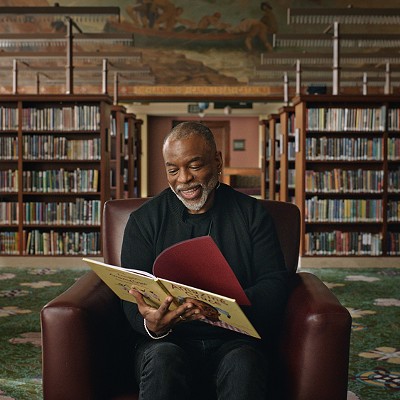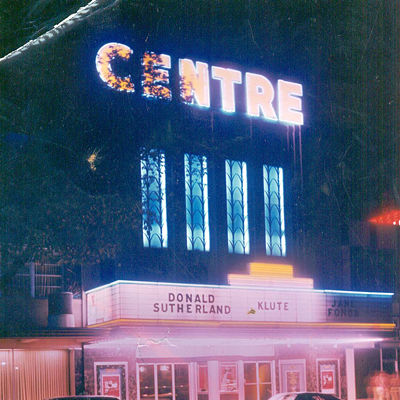It’s an incredible song, but the chest-beating refrain of “I’m still alive,” speaks as more than just a mere hooky, accessible line that’s easily sung by an arena’s worth of ecstatic fans. It serves as a quip on the grunge band’s post-“Yield” legacy, which is more remarkable for its longevity than the ragged quality of tunes they’ve produced.
Director and former Rolling Stone contributing editor Cameron Crowe (“Almost Famous,” “Jerry Maguire,” “Say Anything ...”) briefly acknowledged this near the end of “Twenty,” which he wove together from decades of footage — 12,000 hours, according to the DVD’s website — of the usual rock-doc fare: dusty home-movie cassettes, news stories and interviews with band members both current and dated. But lucky for us, Crowe shows us just why it’s important that Pearl Jam are still alive, and what they meant to not only rock music in the 1990s, but to the whole of popular culture in general.
Of course, we get plenty of old footage, of bassist Jeff Ament wearing regrettable hats that make him look like a hairy birthday cake, of singer Eddie Vedder being a surf bum, and ridiculous lines from their nobody-knows-our-name days (“Yeah, the name was taken by this guy, Mookie Blaylock,” one band member said about their original moniker, Mookie Blaylock), but we also get to witness rare, iconic moments in the life of an iconic band.
There’s terrific footage of Vedder and Stone Gossard writing “Daughter” (originally titled “Brother”) on a tour bus, an acoustic show at a Zurich art space that served as precursor to the episode of “MTV Unplugged” that pushed the group into mainstream awareness, and wild, terrifying shots of Vedder’s limb-risking, Ian MacKaye-inspired stage diving. “We’re gonna take this to another level,” he said, “and if that means risking your life, we’re gonna do it.”
The band (or Vedder, at least) carried the same attitude to the 1996 Grammys, where Vedder basically announced that he didn’t give two wet turds that “Spin the Black Circle” had won the award for Best Hard Rock Performance. Their years-long tussle with Ticketmaster is another example, and both rejections of mainstream success continue to inspire indie and small-market musicians of all genres these days. Both are documented here, reinforcing Pearl Jam’s image as a bastion of popular artistic integrity in an overcommercialized modern age.
If anything, “Twenty”’s greatest faults are tragic ones stemming from Crowe. He’s so close to the band that he fails to realize the absurdity in the implied notion that losing the Ticketmaster boycott wrecked them eternally. I mean, really, they’ve sold more than 60 million albums worldwide. Also, the doc’s lack of clear signposts occasionally causes confusion for those who struggle to keep track of finer details, like names and dates.
But as far as a general history of a very interesting, very important band goes, there’s little he could’ve done better. Seeing all the members open up about the 1990 death of the glammy Andrew Wood, singer for Pearl Jam forerunner Mother Love Bone, was a poignant, important moment, as was their reflection on the 2000 tragedy at the Roskilde Festival in Denmark, which claimed the lives of nine people in the audience.
And, of course, there’s each member discussing the tragedy of Nirvana’s Kurt Cobain, who pushed them to higher artistic endeavors and (for better and worse, intentionally or not) helped break grunge out into the most dominating rock ’n’ roll subgenre since ’80s hair metal.











